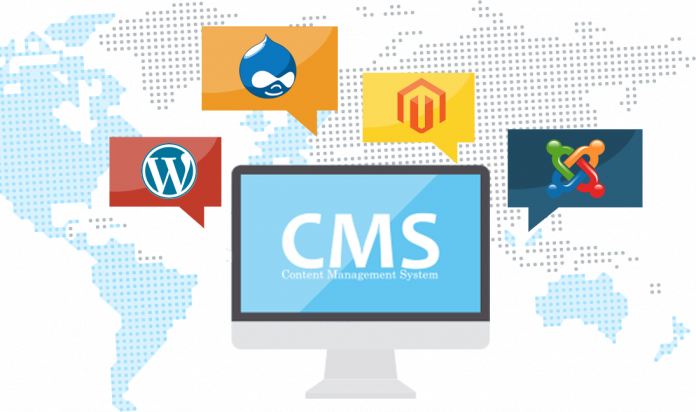When it comes to website design, you can either go with a traditional approach or take a more web-based approach. Traditional websites are designed with a static layout that is built using programming languages such as HTML, CSS, and JavaScript. These websites are designed in a way that is separate from the business’s operations and can be modified or updated only by a professional web designer. Web-based systems, on the other hand, allow businesses to manage their website through an online interface. This allows businesses to update their website content and features in real time without the need for a web designer. In this blog post, we will take a look at 10 CMS-based websites that will change how you do business. From customizing your site’s look and feel to offering unlimited storage space and creating powerful reports, these websites have everything you need to get started with a web-based system.
What is a CMS?
A content management system (CMS) is a program that helps you manage and publish your website’s content. A CMS makes it easy for you to create, edit, and update your website’s content.
Some of the most popular CMSs are WordPress, Drupal, Joomla!, and Microsoft WordPress. Each has its own set of features and benefits.
WordPress is a popular choice because it’s free and easy to use. It also has a large community of developers who can help you customize and extend its features.
Drupal is popular because it has tons of features but still manages to be very user-friendly. It also comes with tons of modules that can add even more functionality to your site.
Joomla! is another popular choice because it’s well built but still very easy to use. It also comes with an extensive library of themes and plugins that you can use to customize your site exactly the way you want it.
Microsoft WordPress is one of the most well-known CMSs on the market, and for good reason: it’s powerful yet simple to use, making it an ideal platform for any website. Plus, its huge community of developers means there’s always someone available to help you out if needed.
How does a CMS work?
A content management system (CMS) is a computer software application used to create and manage websites. CMSs enable website developers to easily organize and manage the content of a website by allowing them to add, update, delete, or move content items; set up pages and posts; manage permissions and authentication; and track visitor activity.
There are many different types of CMSs, but all share some common features. Most CMSs allow you to create a site from scratch or use an existing template. They also allow you to control how users access your site’s content by providing options for registered users, anonymous visitors, or search engine crawlers. Finally, most CMSs allow you to customize the look and feel of your site using themes or templates.
When choosing a CMS, it is important to evaluate its features and pricing. Some popular CMSs include WordPress, Drupal, Joomla!, Magento, and OpenCart.
What are the benefits of using a CMS?
A content management system (CMS) is a web-based application that enables website administrators to manage the arrangement and presentation of the content on a website. Common features of CMSes include the ability to create and edit pages, articles, blog posts, and other types of content; the ability to manage user accounts and permissions; and the ability to add multimedia files and interactivity.
The benefits of using a CMS include:
1. Increased Efficiency: A CMS makes it easy for website administrators to create and manage content. This increases efficiency because it reduces the amount of work needed to update or create new content.
2. Enhanced Visibility: A well-managed website with a CMS will be more visible than a website without one. This is because CMSes make it easy to add information about the digital marketing company or organization on the site, including products and services offered, team members, news articles, and more.
3. Reduced Costs: A CMS can save money by reducing the amount of time needed to update or create new content, as well as by automating some common tasks such as creating pages or managing user accounts.
4. Improved Site Design: A well-designed website with a CMS will look more professional than a website without one. This is because most CMSes allow users to customize the look and feel of their sites using themes or templates.
10 CMSs to consider for your business
There are a number of different content management systems (CMS) that can be used to create websites. The following are some of the most popular and well-known CMSs: WordPress, Blogger, Drupal, Joomla! and XenForo.
WordPress is probably the most popular CMS out there, with millions of websites using it. It’s free and easy to use, but it also has a lot of features that make it powerful. For example, you can create custom themes or plugins to customize your website’s look and feel.
Blogger is another popular CMS. It’s free to use, but you can also add ads and make money through affiliate marketing.
Drupal is a popular platform for creating websites that are optimized for search engines. It also has features that make it versatile and customizable.
Joomla! is another popular platform for creating websites. It’s free to use, but you can also add premium features such as e-commerce support.
XenForo is a forum-based CMS that many businesses find useful because it offers a lot of customization options.
Conclusion
So, you’ve decided that you want to start doing business in a more sustainable way. Congratulations! There are plenty of great CMS-based websites out there that can help make your dreams a reality. In this article, we’ve highlighted 10 of the most popular and versatile CMSs so that you can start building your own website without any hassle. If you’re still uncertain about which CMS to choose, be sure to check out our roundup of the best CMSs for small businesses as well.











